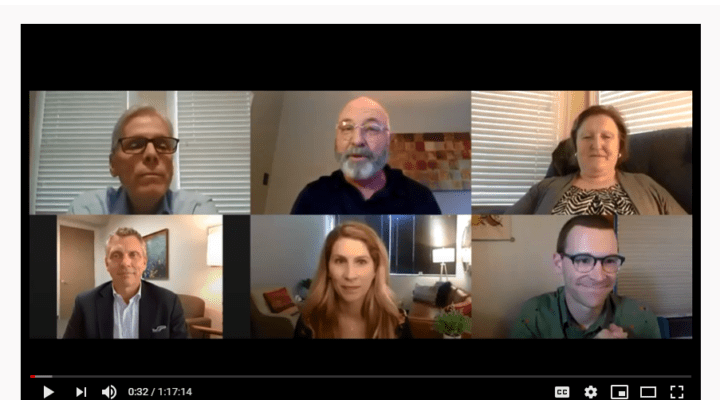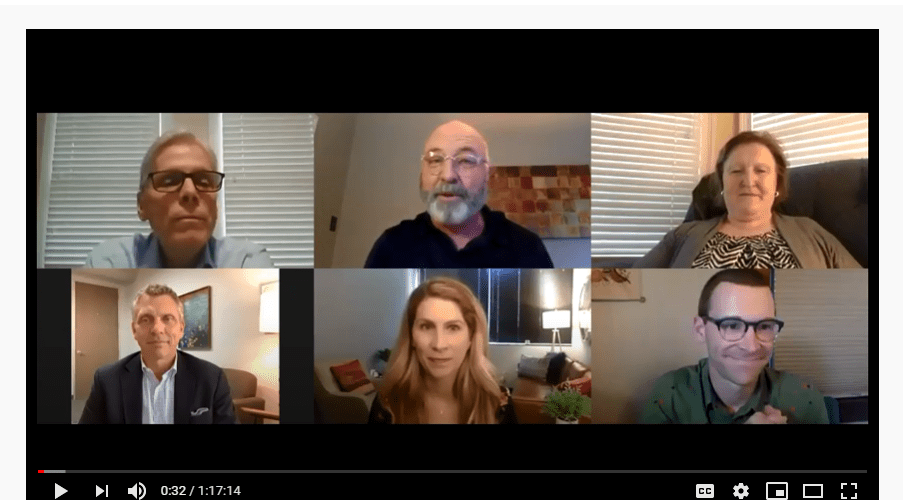Inflamed racial tensions, a divisive election season and alarming climate events — all during a pandemic — have stretched American psychological well-being to the limit.
But there also are some potential spiritual positives from the coronavirus era, according to five panelists in a Sept. 14 BNG webinar on “Maintaining Mental Health During a Pandemic.”
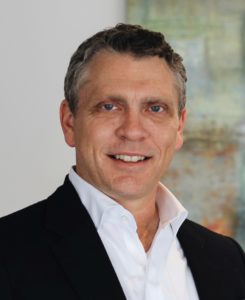
Brad Schwall
The current moment “magnifies the existential fact that we are never in control,” said Brad Schwall, president and CEO of the Center for Integrative Counseling and Psychology in Dallas.
How people respond to that awareness of powerlessness drives subsequent behaviors, said Dallas psychologist Kathryn Keller, adding that such responses can lead some into therapy and others into the world of conspiracy theories.
“People are needing an escape that gives them a sense of control,” she said.
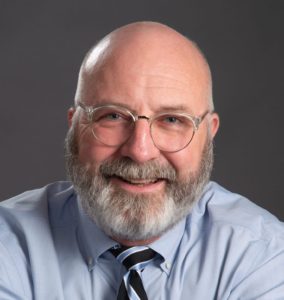
Mark Wingfield
The five-member panel answered questions from Mark Wingfield, BNG executive director and publisher, and from some of the 80 viewers logged into the Zoom gathering. In just over an hour and 15 minutes, they covered topics from psychological impacts of the pandemic and social unrest to healthy actions to address feelings of depression, loneliness and suicide.
Keller said sleep issues, including nightmares, have risen significantly among the clients of her private practice with adults. Climate concerns and police violence also have triggered “a sense of powerlessness and feeling out of control.”
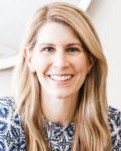
Kathryn Keller
She added that her clients who are Black are feeling additional stress in handling frequent questions about racism from white friends.
Psychological conditions diagnosed before the pandemic have worsened during it, said Doyle R. Hamilton III, a pastoral counselor in Rowell, Ga. The pandemic “has exacerbated the symptoms.”
The effects of isolation have been especially harsh for hospital patients, said Grace Powell Freeman, an Atlanta-based health care chaplain.
“I see such a loneliness.”
“I see such a loneliness,” she said of patients who face isolation either because of the coronavirus or because of general restrictions enacted out of precaution due to the virus. Patients miss contact with loved ones when they are hospitalized, and they often must come to outpatient treatment alone.
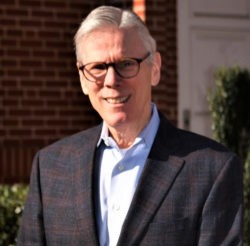
Doyle R. Hamilton III
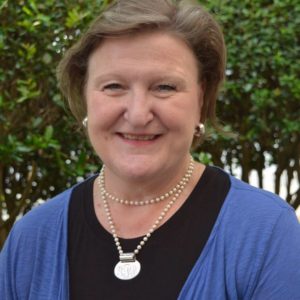
Grace Powell Freeman
Knoxville, Tenn. psychotherapist Eric Minton said he has discerned a level of sheer exhaustion among the clients he serves. For many of them, it’s being worn out from having to make a series of major decisions on issues like school and work attendance, or whether to isolate from older, more vulnerable relatives and friends.
“We don’t have the long-term skillset to navigate some of these systemic issues,” he said.
Minton noted that one of the pandemic’s effects has been to heighten political and economic competition. “There is no solidarity; there is only scarcity.”
Schwall reported a jump nationwide in the number of reported cases of child abuse, suicidal ideation and substance abuse during the pandemic.
Wingfield, who has written at BNG in the past about his own bout with near-suicidal depression, stopped to ask the audience if any among them felt suicidal. “I am someone who has been where you are right now,” he said. “You are not alone.”
“We are all saying to you: We want you to live.”
He explained that he found freedom when a friend expressed concern for his well-being and asked him to pledge that he would call that friend before he did anything to harm himself. That helped free him from those thoughts, he said, urging the audience: “We are all saying to you: We want you to live.”
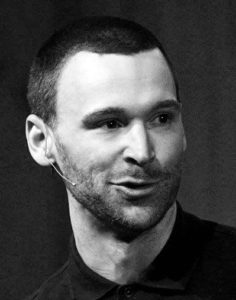
Eric Minton
He urged all webinar participants to follow the lead of his friend and express interest in the lives of others who may be suffering. “Reach out and be bold,” he said. “I was not offended in that moment.”
The panel then took up the residual effects they predict this era will have going forward. They offered positives and negatives, including the hope that life will indeed be different in the future — and not just return to old norms.
Hamilton said it’s apparent to him that many pastors continue to struggle with the appropriateness of seeking outside help for their own emotional and mental issues. “I wish clergy would know it’s OK to get help.” And in knowing that, to say so from the pulpit will help others, he added.
Keller said some of her patients diagnosed with social anxiety disorders have reported feeling better because they prefer the isolation brought by the pandemic. But that may not be healthy, either, she explained. “We are pushing them not to isolate.”
Experience shows that all trauma can lead to growth and healing, the panelists agreed.
Public awareness about mental health is on the rise.
Among those positives: Public awareness about mental health is on the rise, Schwall said. “I have seen it on the news, and I have been doing more interviews than I have ever done.”
The same is true, he added, about an open dialogue on race.
Panelists concluded with a discussion on actions that can lead to healing. Key among them is honesty, owning up to the reality of the moment and no longer pretending it isn’t hard.
“Admit the grief,” Schwall advised. “Name it.” And be open to seeking therapy to help deal with anxiety and depression, he added.
The panelists spoke of many spiritual practices that could be helpful in these times, including prayer patterns, journaling, talking, stillness and listening.
For example, Hamilton suggested using a welcoming prayer to foster acceptance of one’s depression or other conditions. “Listen to it and respect it as a lab for learning to grow.”
Minton suggested relying on faith as a way of uncovering and healing pain rather than running away from pain. Through such honesty, anxiety may be accepted and addressed – as long as faith is not allowed to devolve into platitudes.
“I like a nonproductive sabbath,” he said, referring to a process of being still and quiet.
Some spiritual disciplines may be more familiar to many, panelists said.
Schwall suggested journaling to isolate and recognize disturbing feelings — a tool Freeman said she’s used recently to handle her own challenges. “Thursday, I felt a knot inside of me and I realized I hadn’t let myself deal with any of what was going on. I had to go and sit and be quiet and still.”
While journaling helped her head back to center, so did getting a good night’s sleep, Freeman said — a point echoed by other panelists as a basic first step toward mental health.
Keller said avoiding religious platitudes can also help. That means avoiding thinking “I’ll just give it to God and pray more.” Instead of running from depression, let it “speak to you,” she added.
“If it feels like we’re skipping things because they’re hard, that might be a helpful red flag to go back to.”
Watch the entire webinar on BNG’s YouTube channel.
Related articles:
A tattoo that says, ‘Your story is not over’
Coronavirus presents a challenge to mental health as well
Jarrid Wilson’s suicide – and the urgency of pastors being free to be themselves
Adult faith formation thriving although different due to COVID

